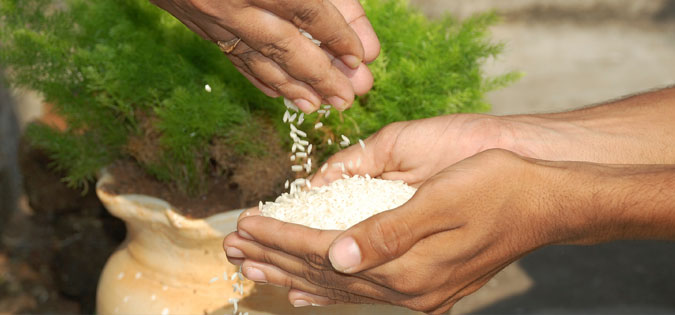
She explained that she had been living in the refugee camp for 16 years. During this time, she said, they would get “this much rice for the week,” nodding down at her tightly cupped outstretched hands. Then, motioning with pinched fingers, she demonstrated how she would divide the grains of rice so that each family member would have a few for each day of the week. It was about a cup of rice for a whole week for a family of four for 16 years. Hers were tears of gratitude for long-awaited relief from starvation.
A different kind of tears welled up in my own eyes. How was I to respond? What words could I even say? I didn’t know any way to deal gracefully with the pain that her recollection caused me as a mother and as a fellow human being. And this part of her story was just the tip of the iceberg when it came to the painful stories I would hear over the years. Every time I hear a refugee’s story, I have the same reaction: “We are all human! How can we treat each other this way?”
In a recent OpEd in the New York Times, Pulitzer Prize-winning novelist Viet Thanh Nguyen speaks of the de-humanization of those unexpectedly finding themselves with the label “refugee.” In his characteristically eloquent and piercingly truthful style, he writes, “…refugees are the zombies of the world, the undead who rise from dying states to march or swim toward our borders in endless waves.” He speaks of his own arrival in the U.S. as a refugee child as a time when “the world thought us to be less than human.”
How is it that when we give a person the appellation of “refugee” we often forget our shared humanity? How have we forgotten that where we are born—into peace or strife—is simply the “luck of the draw?” And how do we forget that we are all created by God, in the image and likeness of God, and this endows each of our lives with a value and dignity that must be respected?
Pope Francis’s universal prayer intention for September is for a society “that puts the human person at its center.” He warns that “humanity is experiencing a crisis” that is not only related to the economy but a crisis that is “ecological, educational, moral, and human.”
In his advocacy for refugees and others on the margins, Pope Francis renews St. Ignatius’s call to enter into the suffering of Christ. In the Third Week of the Spiritual Exercises, Ignatius invites us to contemplate the Passion. He urges us not just to reflect on Christ’s pain and suffering conceptually from afar, but to enter right into it with him. We are advised not to flee from the uncomfortable feelings that arise within us, but rather to listen and sit with them and stay with Christ. And so arises the spiritual fruit of compassion as we “suffer with” Christ. The Cross invites us to stay and accompany Christ in each suffering person, outcast and alone, despite the urge to flee when we start to feel their pain.
Pope Francis has given us some serious food for thought. How can we create a society “that puts the human person at its center”? How can we answer the call to practice compassion in the world today? Where are those people on the margins in my life, my community, and the world that are suffering? In what ways might I accompany these, my fellow travelers, on their journey?
Our action on these responses shall, quite literally, change the world.
